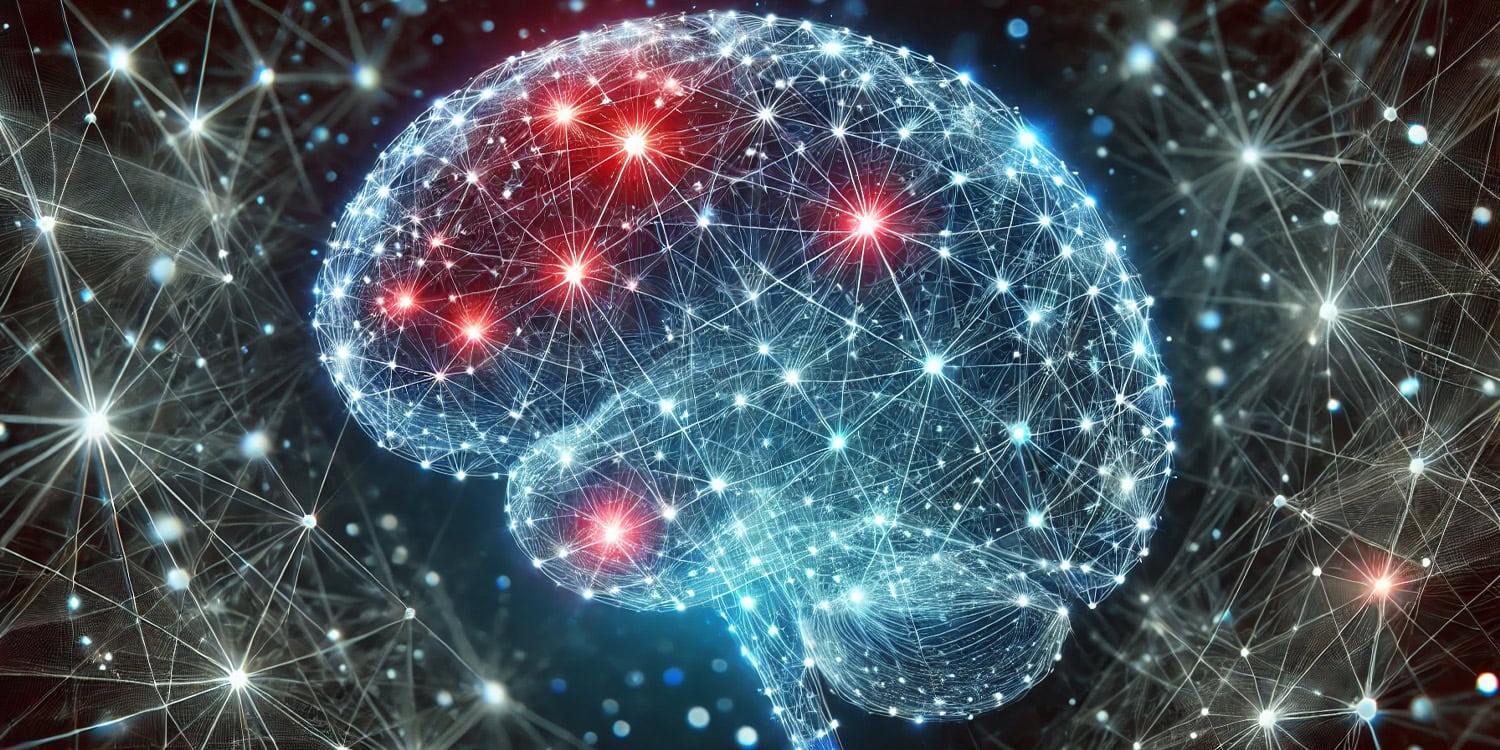A new study published in Proceedings of the National Academy of Sciences suggests that specific networks in the brain, when damaged, may influence the likelihood of developing religious fundamentalism. By analyzing patients with focal brain lesions, researchers found that damage to a particular network of brain regions—mainly in the right hemisphere—was associated with higher levels of fundamentalist beliefs. This finding provides new insight into the potential neural basis of religious fundamentalism, which has long been studied in psychology but less so in neuroscience.
Religious fundamentalism is a way of thinking and behaving characterized by a rigid adherence to religious doctrines that are seen as absolute and inerrant. It’s been linked to various cognitive traits such as authoritarianism, resistance to doubt, and a lower complexity of thought. While much of the research on religious fundamentalism has focused on social and environmental factors like family upbringing and cultural influence, there has been growing interest in the role of biology. Some studies have suggested that genetic factors or brain function may influence religiosity, but until now, very little research has looked at specific brain networks that could underlie fundamentalist thinking.
The researchers behind this study wanted to address a critical gap in understanding how brain lesions might affect religious beliefs, particularly fundamentalism. Prior research suggested that damage to the prefrontal cortex could increase fundamentalist attitudes, but this work was limited to small sample sizes and focused only on one part of the brain. The authors of the study hypothesized that instead of a single brain region being responsible, religious fundamentalism might arise from damage to a distributed network of connected brain regions.
“My primary interest is and has been mystical experience. But in the process researching the cognitive neuroscience of mystical experience, I came across brain network associations with religious fundamentalism,” study corresponding author Michael Ferguson, an instructor in neurology at Harvard Medical School and director of Neurospirituality Research at the Center for Brain Circuit Therapeutics.
To explore whether damage to specific brain networks could influence the likelihood of holding religious fundamentalist beliefs, the researchers used a method called lesion network mapping, which helps identify how different regions of the brain are connected and how damage to one area might disrupt related brain functions. The study involved two large groups of patients with focal brain damage, giving the researchers a unique opportunity to analyze how different types of brain lesions might be linked to religious beliefs.
The first group consisted of 106 male Vietnam War veterans who had sustained traumatic brain injuries during combat. These men, now aged between 53 and 75, were part of a long-term study conducted at the National Institutes of Health. The second group included 84 patients from rural Iowa who had experienced brain injuries from various causes, such as strokes, surgical resections, or traumatic head injuries. This second group was more diverse in terms of gender and had a broader range of injury causes.
Both groups completed a scale designed to measure religious fundamentalism, which asked participants to respond to statements reflecting rigid and inerrant religious beliefs, such as the view that there is only one true religion or that certain religious teachings are absolutely correct and unchangeable.
For each participant, the researchers mapped the precise locations of their brain lesions using advanced imaging techniques like computerized tomography (CT) and magnetic resonance imaging (MRI). These scans were then analyzed using lesion network mapping to see how damage to certain brain areas was connected to changes in religious fundamentalism scores. The researchers also compared the brain lesion data to a larger database of lesions associated with various neuropsychiatric and behavioral conditions, which helped them understand how the brain regions linked to religious fundamentalism overlap with those involved in other psychological traits.
The researchers found that damage to certain areas of the brain, particularly in the right hemisphere, was associated with higher scores on the religious fundamentalism scale. Specifically, lesions affecting the right superior orbital frontal cortex, right middle frontal gyrus, right inferior parietal lobe, and the left cerebellum were linked to increased religious fundamentalism. In contrast, damage to regions such as the left paracentral lobule and the right cerebellum was associated with lower scores on the fundamentalism scale.
“The strength and reproducibility of the signal between psychological self-report measures of religious fundamentalism and the functional networks we identified in the brain surprised me,” Ferguson told PsyPost. “It increases confidence in the results.”
Interestingly, the researchers noted that the brain regions identified in this study are part of a broader network connected to cognitive functions like reasoning, belief formation, and moral decision-making. These areas are also associated with conditions like pathological confabulation—a disorder where individuals create false memories or beliefs without the intent to deceive. Confabulation is often linked to cognitive rigidity and difficulty in revising beliefs, characteristics that are also found in individuals with high levels of religious fundamentalism.
The researchers also found a spatial overlap between brain lesions associated with criminal behavior and this fundamentalism network, which aligns with previous research suggesting that extreme religious beliefs may be linked to hostility and aggression toward outgroups.
“It’s sobering, but one of the takeaway findings is the shared neuroanatomy between religious fundamentalism, confabulations, and criminal behavior,” Ferguson said. “It refocuses important questions about how and why these aspects of human behavior may be observed to relate to each other.”
The researchers emphasize that damage to this brain network does not guarantee that a person will develop fundamentalist beliefs, nor does it imply that individuals with strong religious convictions have brain damage. Instead, the findings point to the possibility that certain brain networks influence how people process beliefs and how flexible or rigid their thinking becomes, especially in the context of religion.
“A major caveat is that these results do not indicate that people with strong religious beliefs confabulate or that individuals high in religious fundamentalism commit crimes,” Ferguson explained. “Rather, our data may help us understand the style of cognitive or emotional processing that increase or decrease the probability of holding fundamentalism attitudes.”
The authors suggest that future research should explore how this brain network influences religious fundamentalism in more diverse populations, including people from non-Christian religious traditions or from different cultural backgrounds. It would also be valuable to study patients both before and after brain injuries to better understand how changes in the brain might affect religious beliefs over time. Additionally, research could investigate how this brain network relates to other types of belief systems, such as political ideologies or moral convictions, to see if similar patterns of cognitive rigidity or reduced skepticism emerge in these contexts.
“The personal beliefs of the authors span a broad continuum from adherents of religious faiths through agnosticism to atheism,” Ferguson noted. “We approach the weighty subject matter of this research as earnest seekers of scientific data and encourage readers to receive our results in the spirit of open-minded empirical inquiry driven by scientific curiosity and without prejudice or malice to any group or faith.”
The study, “A neural network for religious fundamentalism derived from patients with brain lesions,” was authored by Michael A. Ferguson, Erik W. Asp, Isaiah Kletenik , Daniel Tranel, Aaron D. Boes, Jenae M. Nelson, Frederic L. W. V. J. Schaper, Shan Siddiqi, Joseph I. Turner, J. Seth Anderson, Jared A. Nielsen, James R. Bateman, Jordan Grafman, and Michael D. Fox.




